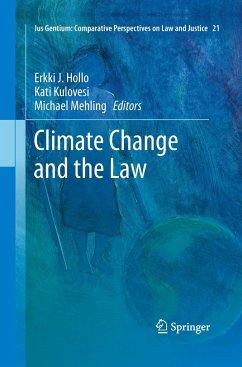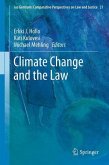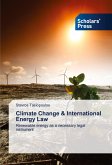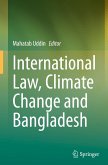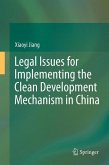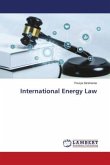Climate Change and the Law is the first scholarly effort to systematically address doctrinal issues related to climate law as an emergent legal discipline. It assembles some of the most recognized experts in the field to identify relevant trends and common themes from a variety of geographic and professional perspectives.
In a remarkably short time span, climate change has become deeply embedded in important areas of the law. As a global challenge calling for collective action, climate change has elicited substantial rulemaking at the international plane, percolating through the broader legal system to the regional, national and local levels. More than other areas of law, the normative and practical framework dedicated to climate change has embraced new instruments and softened traditional boundaries between formal and informal, public and private, substantive and procedural; so ubiquitous is the reach of relevant rules nowadays that scholars routinely devote attentionto the intersection of climate change and more established fields of legal study, such as international trade law.
Climate Change and the Law explores the rich diversity of international, regional, national, sub-national and transnational legal responses to climate change. Is climate law emerging as a new legal discipline? If so, what shared objectives and concepts define it? How does climate law relate to other areas of law? Such questions lie at the heart of this new book, whose thirty chapters cover doctrinal questions as well as a range of thematic and regional case studies. As Christiana Figueres, Executive Secretary of the United Nations Framework Convention on Climate Change (UNFCCC), states in her preface, these chapters collectively provide a "review of the emergence of a newdiscipline, its core principles and legal techniques, and its relationship and potential interaction with other disciplines."
In a remarkably short time span, climate change has become deeply embedded in important areas of the law. As a global challenge calling for collective action, climate change has elicited substantial rulemaking at the international plane, percolating through the broader legal system to the regional, national and local levels. More than other areas of law, the normative and practical framework dedicated to climate change has embraced new instruments and softened traditional boundaries between formal and informal, public and private, substantive and procedural; so ubiquitous is the reach of relevant rules nowadays that scholars routinely devote attentionto the intersection of climate change and more established fields of legal study, such as international trade law.
Climate Change and the Law explores the rich diversity of international, regional, national, sub-national and transnational legal responses to climate change. Is climate law emerging as a new legal discipline? If so, what shared objectives and concepts define it? How does climate law relate to other areas of law? Such questions lie at the heart of this new book, whose thirty chapters cover doctrinal questions as well as a range of thematic and regional case studies. As Christiana Figueres, Executive Secretary of the United Nations Framework Convention on Climate Change (UNFCCC), states in her preface, these chapters collectively provide a "review of the emergence of a newdiscipline, its core principles and legal techniques, and its relationship and potential interaction with other disciplines."
From the reviews:
"This edited collection provides a unique contribution to the scholarship debate on climate change. ... This volume is thus a solid collection of pieces which I would certainly recommend to anyone who wish to gain an improved understanding of the complex web of legal norms addressing climate change. ... the book also represents an interesting reference tool for policy makers and practitioners involved in the ongoing discussions on climate change regulation and governance." (Emanuela Orlando, Cambridge Law Journal, Vol. 72 (3), November, 2013)
"This edited collection provides a unique contribution to the scholarship debate on climate change. ... This volume is thus a solid collection of pieces which I would certainly recommend to anyone who wish to gain an improved understanding of the complex web of legal norms addressing climate change. ... the book also represents an interesting reference tool for policy makers and practitioners involved in the ongoing discussions on climate change regulation and governance." (Emanuela Orlando, Cambridge Law Journal, Vol. 72 (3), November, 2013)

